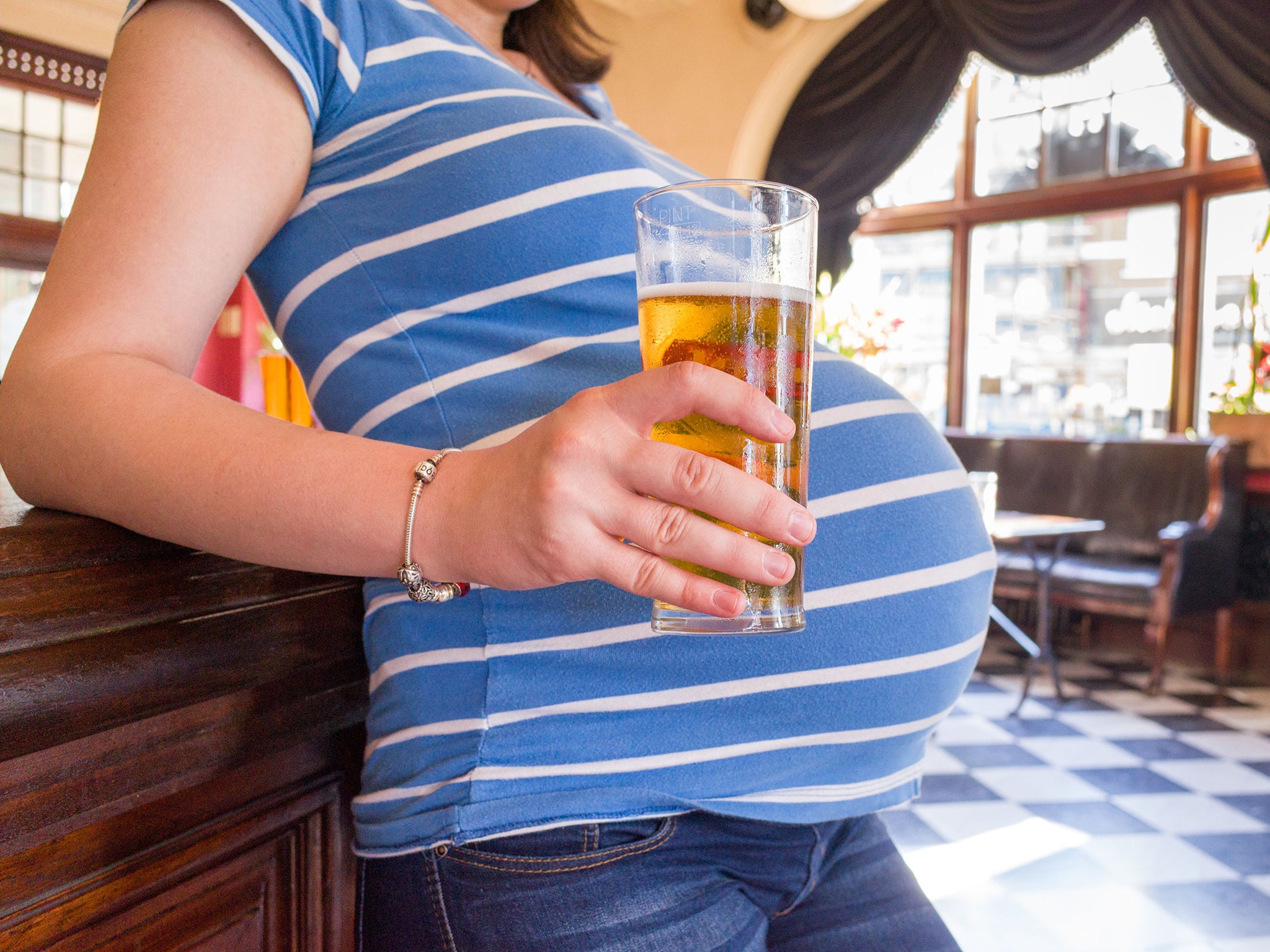Nearly a third of pregnant women in the UK binge drink, research reveals
Experts still dispute the safe level of alcohol consumption while pregnant

Your support helps us to tell the story
From reproductive rights to climate change to Big Tech, The Independent is on the ground when the story is developing. Whether it's investigating the financials of Elon Musk's pro-Trump PAC or producing our latest documentary, 'The A Word', which shines a light on the American women fighting for reproductive rights, we know how important it is to parse out the facts from the messaging.
At such a critical moment in US history, we need reporters on the ground. Your donation allows us to keep sending journalists to speak to both sides of the story.
The Independent is trusted by Americans across the entire political spectrum. And unlike many other quality news outlets, we choose not to lock Americans out of our reporting and analysis with paywalls. We believe quality journalism should be available to everyone, paid for by those who can afford it.
Your support makes all the difference.Three-quarters of pregnant women in the UK report drinking some alcohol during pregnancy, according to new research.
At 75 per cent, rates of drinking while pregnant were lower than in Ireland, where 86 per cent reporting drinking, but higher than in Australia and New Zealand, according to analysis of international data on more than 17,000 women.
Nearly a third of women in the UK reported an episode of binge drinking while pregnant – defined as six or more units on one occasion. However, this dropped to less than 1 per cent after the first three months of pregnancy – suggesting that many of those who reported binge drinking did so early in pregnancy when they may not have known they were pregnant.
Overall rates of all drinking also fell after three months of pregnancy, to just over a third, with 96 per cent of these women drinking just one to two units a week.
The analysis is based on data from three large studies, and is published in the BMJ Open online journal.
Experts still do not know precisely what level of alcohol consumption is safe while pregnant. It is known that heavy drinking can seriously harm the development of the baby in the womb, but there is no evidence that moderate drinking does any damage.
Despite this, many health professionals advise women to adopt the precautionary principle and not drink at all. Official advice in the UK from the National Institute of Health and Care Excellence (NICE) states that women should not drink at all in the first three months of pregnancy, and drink no more than one or two units, once or twice a week, after that.
The researchers behind the latest study, from University College Cork and Kings College London, said the sort of widespread consumption of alcohol while pregnant that the study had uncovered, even at low levels, represented “a significant public health concern”.
However, the British Pregnancy Advisory Service (BPAS) said most women in the study were well within existing recommendations.
“This analysis suggests women in the UK reduce their alcohol consumption dramatically when they find out they are pregnant,” said Clare Murphy, of BPAS. “By the second trimester [after three months], many women are not drinking at all. Among those who are consuming some alcohol, nearly all are doing so at very low levels where there is no evidence of harm.”
The study also found that women who smoked were also more likely to drink while pregnant, and that women in their 30s were less likely to drink than older mothers.
Join our commenting forum
Join thought-provoking conversations, follow other Independent readers and see their replies
Comments